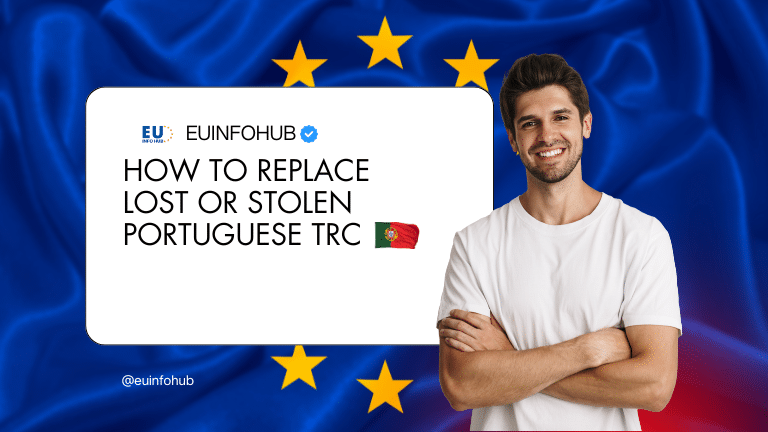Thinking about moving to Europe? While you’re chasing a new job or simply starting fresh, one question always pops up early:
What’s the healthcare like over there?
Well, Europe usually gives the answer people are hoping for. Europe offers some of the best healthcare in the world with universal coverage, modern hospitals, and international insurance that won’t break the bank. Here’s the tricky part: every country is different. The cost, access, quality, and even how you sign up can vary a lot, and if you’re an expat, figuring it all out can feel overwhelming. What’s covered? Should you go public or private plan?
Scroll down to find the answer to all these questions. So, let’s get straight into the topic without further delay.
Why Healthcare in Europe Is Considered the Best?
Europeans figured healthcare out. Countries like France, Spain, Germany, and the Netherlands regularly land in the top 10 worldwide for healthcare access.
But this isn’t just about numbers and charts. It’s about the everyday experience of people living here. Expats getting affordable checkups, finding top-tier specialists without breaking the bank, and not having to stress over every hospital bill.
Whether you’re retiring on the coast of Spain, remote working in Portugal, or raising a family in Germany, chances are you’ll have access to both public and private care. And that flexibility? It’s one of the reasons healthcare in Europe is trusted, dependable, and often life-changing.
Public vs. Private Healthcare in Europe: What’s the Real Difference?
By choosing the right health insurance expatriate plan or international medical insurance, you can use public care when it works and go private when it counts. A smart move if you’re comparing coverage, convenience, and peace of mind.
To make things clearer, here’s a quick side-by-side look at how public and private healthcare compare. So you can decide what’s right for your situation.
| Feature | Public Healthcare | Private Healthcare |
| Funding | Government-funded (taxes) | Out-of-pocket or private insurance |
| Cost | Low or free at the point of use | Higher, varies by provider |
| Access | Universal (with residency) | Open to all, faster appointments |
| Coverage | Comprehensive basic care | Expanded services, private rooms, etc. |
| Wait Times | Can be long for specialists | Shorter, often same-week appointments |
| Quality of Facilities | High, but varies by region | Often premium, modern equipment |
Understanding different healthcare options can help make a better decision.
What Does It Cost You as an Expat?
When it comes to healthcare, Europe really looks affordable and accessible. Especially when you come from the U.S. or parts of Asia. The combination of a low-cost public system and affordable insurance makes living in Europe a financial relief.
If you are choosing a private healthcare system, you will be surprised to know that the premium is much more reasonable than you might expect. The range of premiums depends on your age, country, and the coverage plan that you choose. The private plans usually range from €80 to €150 per month.
Public healthcare, on the other hand, is often even easier on the wallet. Once you’re a legal resident:
- Registration is usually free or low-cost
- Most essential treatments are covered
- GP visits and hospital care often cost nothing at the point of service
Whether you choose a public, private, or hybrid plan, Europe’s healthcare system is designed to give you access without draining your bank account. And that’s a big win for any expat trying to balance peace of mind with practical living.
Top European Countries for Expats Seeking the Best Healthcare in the World
If you’re looking for the best healthcare in the world, Europe doesn’t give you just one good option; it gives you a list of all-stars.
Here are the top European destinations where expats consistently rate the healthcare experience as exceptional:
France
According to the WHO Report, France’s healthcare system is a dream for expats. It’s affordable, efficient, and widely praised for its balance between public access and private comfort. After just three months of legal residency, most expats can register and begin receiving care.
Germany
Germany blends public and private care with near perfection. Its dual system allows you to choose what works for your budget and needs, and its infrastructure is top-notch. The country is also one of the most popular choices for international medical insurance due to its balance of quality and cost.
Spain
Sunshine, great food, and excellent healthcare? No wonder Spain is loved by expat retirees. The public system is strong, hospitals are modern, and costs are surprisingly low. Registration is simple once you establish residency.
Sweden
Sweden delivers comprehensive, tech-driven care funded by taxes. While the system is highly organized, be aware that wait times for non-urgent care can be longer, but the quality of care is outstanding once you’re in.
Denmark
Don’t let its small size fool you—Denmark’s public healthcare is one of the most streamlined in Europe. It’s known for short wait times, strong patient outcomes, and an easy-to-navigate system even for expats.
If you’re a student in Europe, the healthcare plan might be different. Check out our detailed guide on student life in Europe to get detailed insight.
Access, Coverage & Wait Times: What to Expect
The healthcare system of Europe becomes accessible once you’re settled. In most countries, you can qualify for public healthcare insurance after 3 to 6 months of legal residency. Once you get registered, you’re officially in the system.
What’s covered? Most European public healthcare systems take care of:
- GP visits and basic consultations
- Hospital stays and emergency care
- Prescriptions
- Mental health support and preventative services
The public healthcare system may make you wait a few weeks for a specialist appointment. But in addition to public services, you have health insurance expatriate plans, which include private care. You can see a doctor and a specialist within days.
So, whether you’re planning a routine checkup or need a referral fast, the right coverage gives you options and peace of mind.
Wrap up
If you’re searching for affordable, high-quality healthcare, Europe has you covered. With universal systems, modern hospitals, and country-specific perks, you’ll find options that fit your lifestyle. For expats, it’s not just about saving money; it’s about peace of mind.
Want real-world advice before your move regarding the best healthcare in the world? Visit our EU Info Hub for detailed tips, country comparisons, and everything you need to make informed decisions.
FAQs
Q1. Which country has the best healthcare in the world?
According to the WHO and CEOWORLD rankings, France ranks due to its healthcare quality and affordability. In addition, other countries like Germany, Spain, and the Netherlands also score incredibly high.
Q2. What’s the cost of international medical insurance for expats?
The cost of international medical insurance depends on some factors, such as your age, destination, and coverage level. On average, expats have to pay €80–€300 per month. The global coverage insurance plan is costly, but it offers greater flexibility.
Q3. Should I choose public or private healthcare?
If you are legally living in Europe, then public health care is often free or very low-cost. It covers essential care, but you may have to face longer wait times. Many expats combine public health services with private health services for faster access, which adds comfort.
Q4. Where can I compare expat health plans?
You can use a medical insurance comparison platform online or go through international providers like Cigna, Bupa, Allianz, or IMG. These companies specialize in health insurance expatriate plans tailored for global lifestyles.
















Thanks for sharing. I read many of your blog posts, cool, your blog is very good.